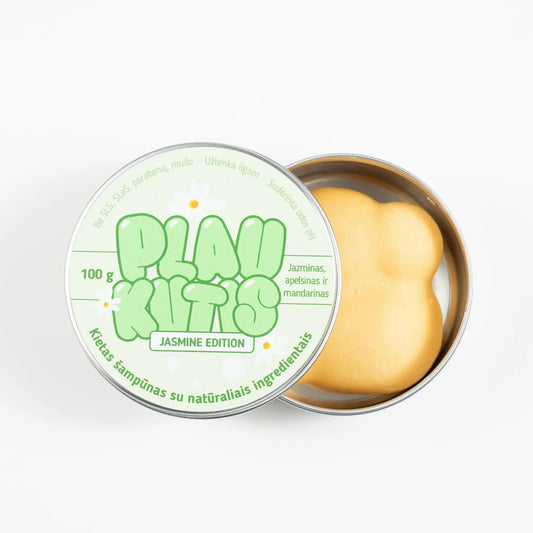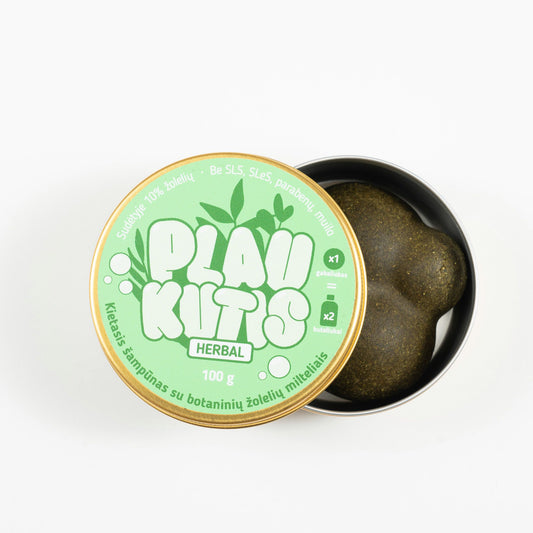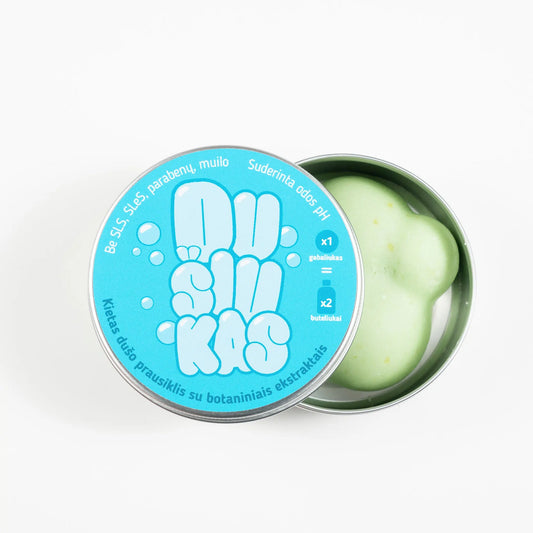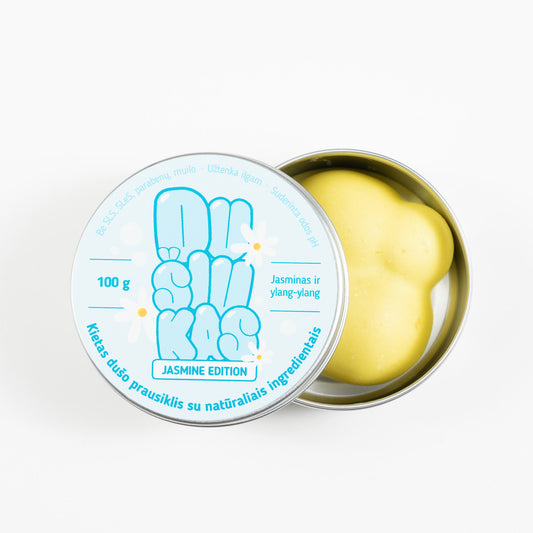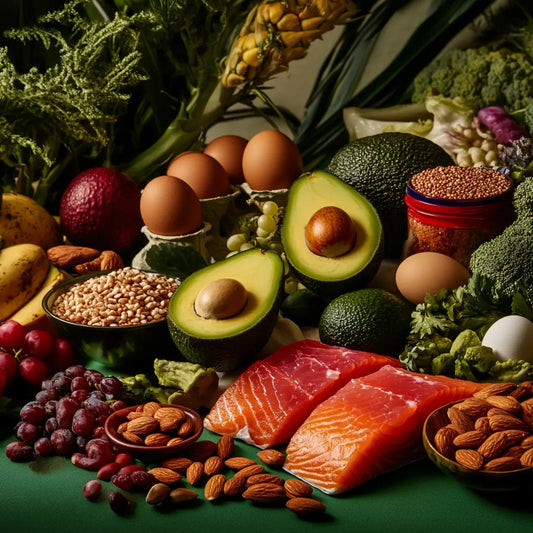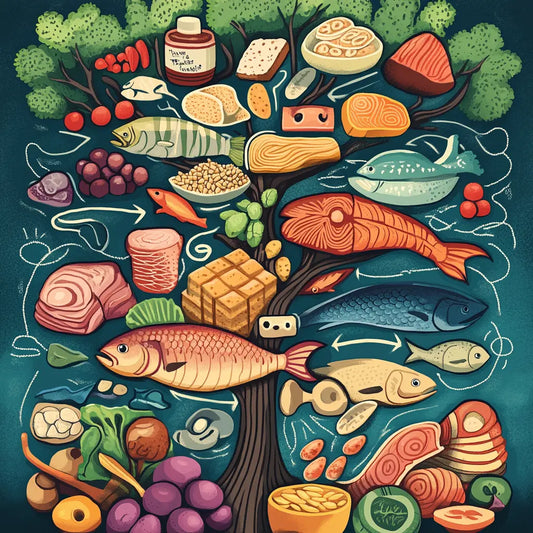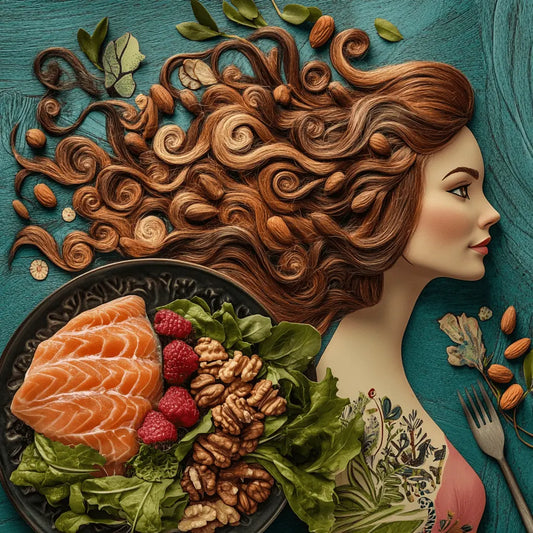Are you looking for natural ways to improve the strength, growth, and shine of your hair? While many people turn to hair care products, the truth is that the secret to healthy hair often starts from within. What you eat has a big impact on how your hair grows and how resistant it is to damage. Nuts, seeds, oils, and rare superfoods are packed with essential nutrients that can transform your hair, making it stronger, shinier, and more resilient. In this article, we’ll discuss how these natural ingredients promote healthy hair growth, and share practical tips, insights, and little-known facts that may surprise you.
Benefits of almonds, walnuts, chia seeds and flaxseeds for hair
Almonds – a source of biotin and vitamin E
Almonds are a real powerhouse of hair health. They are rich in biotin (vitamin B7) and vitamin E, which are essential for hair growth and protection. Biotin helps your body produce keratin, a protein that makes up your hair, skin, and nails. If you lack biotin, your hair can become brittle and start breaking. Almonds also contain vitamin E, a powerful antioxidant that helps reduce oxidative stress that can damage hair follicles.
- Fun fact: A small handful of almonds (about 23 almonds) contains about 6.2 mcg of biotin – about 20% of the recommended daily intake.
- Tip: Snack on almonds daily or add them to smoothies to boost your biotin and vitamin E intake.
Vitamin E also improves blood circulation to the scalp, ensuring that hair follicles receive enough nutrients and oxygen. This promotes faster, healthier hair growth. A study published in the journal Tropical Life Sciences Research found that participants who took vitamin E supplements had a 34% increase in hair growth after eight months.

Walnuts – omega-3 fatty acids
Walnuts are another great choice for hair health. They are rich in omega-3 fatty acids, which help keep hair hydrated and healthy. Omega-3 fats nourish hair follicles and keep the scalp moisturized, reducing the risk of dryness, dandruff, and scalp irritation. They also have anti-inflammatory properties, which can soothe scalp irritations that can inhibit hair growth.
- Fun fact: Just 14 walnut halves provide almost 2.5 grams of omega-3 fatty acids.
- Cultural example: In ancient Persia, walnuts were considered the "royal food" due to their high nutritional value, and they were often recommended for maintaining thick, shiny hair.
Walnuts also contain selenium, a trace mineral that helps regulate thyroid hormone production, which directly affects hair growth. Studies show that selenium deficiency is linked to increased hair loss.
Chia seeds and flax seeds – antioxidants
Chia seeds and flaxseeds may be small, but their benefits for hair health are huge. These seeds are rich in antioxidants that protect hair from environmental stressors like pollution and UV rays. They are also high in omega-3 fatty acids and fiber, which promote healthy hair growth.
Chia seeds are especially known for their ability to retain water, helping the body and scalp stay hydrated. Moisture is key to protecting hair from dryness and brittleness. Flaxseeds, on the other hand, are a great source of lignans, powerful antioxidants that reduce inflammation and protect hair follicles from oxidative stress.
- Fact: Just 28 grams of chia seeds contain almost 5 grams of omega-3 fatty acids.
- Research Insight: A study published in Antioxidants & Redox Signaling showed that participants who consumed antioxidant-rich seeds experienced 25% less hair breakage and improved hair strength over a six-month period.
The importance of oils like coconut, olive and argan for hair
Coconut oil – moisturizing
Coconut oil is widely praised for its ability to deeply moisturize and hydrate hair. Its unique structure allows it to penetrate the hair shaft better than most other oils, reducing protein loss and strengthening the hair. Coconut oil is especially good for those with dry, frizzy, or damaged hair because it locks in moisture and improves hair texture.
- Fun fact: Studies have shown that coconut oil reduces protein loss in hair by as much as 39% , compared to other oils such as sunflower or mineral oils.
- Tip: Apply warm coconut oil to your scalp and hair, leave it on for 30 minutes, then rinse it out for deeply moisturized, soft hair.
Coconut oil also has antibacterial and antifungal properties that can help prevent scalp infections and dandruff. A healthy scalp is essential for promoting hair growth.

Olive oil – hair restoration
Olive oil has long been used as a natural remedy for damaged hair. It is rich in vitamin E and antioxidants, which help repair split ends, strengthen hair strands, and add shine. It also improves scalp health, reducing dryness and dandruff.
- Interesting fact: The ancient Greeks and Romans considered olive oil to be “liquid gold” and used it not only for food but also for beauty rituals, including hair care.
- Tip: To create a light hair mask, mix olive oil with honey and apply to your hair once a week for even more hydration.
Olive oil also contains oleic acid, which has anti-inflammatory properties that can soothe an irritated or inflamed scalp, creating a healthier environment for hair growth.
Argan oil – shine
Argan oil, also known as “liquid gold” in Morocco, is extracted from the seeds of the argan tree and has been used for centuries to nourish and protect hair. It is rich in antioxidants, vitamin E and essential fatty acids, which help to moisturize hair and add shine. Argan oil is great for taming frizz and protecting hair from the heat of styling tools.
- Fact: One tablespoon of argan oil contains about 7 mg of vitamin E, which is almost 50% of the recommended daily intake.
- Cultural example: In Morocco, argan oil has been used for centuries as a universal beauty product for both skin and hair.
Regular use of argan oil can improve hair elasticity, reduce breakage, and restore its natural shine.
Rare superfoods like spirulina, seaweed, and moringa for hair
Spirulina – for hair growth
Spirulina is a blue-green algae that is rich in protein, vitamins, and minerals, making it a powerful superfood for hair growth. Spirulina contains amino acids that are essential for the formation of keratin, the protein that hair is made of. It is also rich in antioxidants that protect hair from damage and promote healthy, strong hair growth.
- Fact: Spirulina contains over 70% protein by weight, making it one of the richest sources of plant-based protein.
- Research Insight: A 2018 study published in Pharmacognosy Review found that spirulina supplements helped reduce hair thinning by 30% in participants over a six-month period.

Seaweed – Mineral-Rich Nutrition
Seaweed, especially kelp and nori, is a rare superfood rich in essential minerals like iodine, iron, and zinc, which are essential for hair health. Iodine helps regulate thyroid function, which directly affects hair growth, while iron and zinc support healthy hair follicles.
- Fun fact: Seaweed is a staple in the East Asian diet, and Japanese women, famous for their long, thick hair, often claim that seaweed is the secret to their beauty.
Seaweed also contains antioxidants that protect hair from environmental stressors and reduce inflammation in the scalp.
Moringa – a source of vitamins and minerals
Moringa is often called the “miracle tree” for its wide range of health benefits. It is rich in vitamins A, B, C, and E, all of which are essential for hair growth. Moringa also contains zinc, which promotes scalp health by regulating oil production and reducing inflammation.
- Fact: One tablespoon of moringa powder has 7 times more vitamin C than an orange and 4 times more vitamin A than a carrot.
You can include moringa in your diet or use moringa oil on your scalp to promote healthy hair growth and improve overall hair texture.
Myth busting or interesting facts about nuts, seeds and superfoods for hair
- Myth: Only animal products contain the protein needed for hair growth.
Fact: Plant-based sources like spirulina and chia seeds are great for hair because they contain all the essential amino acids that promote healthy hair growth. - Interesting fact: In ancient Rome, women not only consumed olive oil in food, but also used it as a hair care product to protect their hair from the sun and give it shine.
- Myth: Oils make hair greasy and should be avoided.
Fact: When used properly, oils like coconut or argan oil penetrate deep into the hair shaft, moisturizing from within but without leaving a greasy residue. - Fun fact: The Aztecs used chia seeds as a superfood, believing they gave warriors strength. Today, we know that chia seeds contain nutrients needed to strengthen hair.
- Myth: You need expensive hair products to improve hair health.
Fact: Simple ingredients like almonds, walnuts, and oils from your kitchen can provide your hair with essential nutrients and hydration.
Practical tips and solutions
- Include nuts and seeds in your daily diet: Sprinkle almonds, walnuts, chia or flax seeds on your breakfast or mix them into smoothies to boost your hair's essential nutrients.
- Use oils as a weekly hair mask: Apply coconut, olive, or argan oil as a deep moisturizer once a week to hydrate and protect your hair.
- Add a rare superfood to your diet: Mix spirulina into smoothies, seaweed into salads, and moringa powder into soups or teas to promote healthy hair growth.
- Consistency is key: As with any beauty routine, consistency is key. Make these foods and remedies a part of your daily routine to see improvements in your hair health over time.
- Drink plenty of water: Drinking enough water throughout the day is essential to keeping your scalp hydrated and maintaining hair health.

Frequently asked questions
- Which nuts are best for hair growth?
Almonds and walnuts are best for hair growth due to their high content of biotin, vitamin E, and omega-3 fatty acids. - How often should I use coconut oil for hair?
You can use coconut oil once or twice a week as a deep conditioner to help moisturize and protect your hair. - Are chia and flax seeds really good for hair?
Yes! Chia and flax seeds are full of antioxidants and omega-3 fatty acids, which protect hair from damage and promote healthy hair growth. - What superfood should I include in my diet for healthy hair?
Consider adding spirulina, seaweed, and moringa to your diet, as they are rich in nutrients that promote hair growth and strength. - Do oils make hair greasy?
When used correctly, oils such as argan, coconut, and olive oil deeply moisturize the hair without leaving a greasy residue.
Conclusion
Healthy hair isn’t just about the products you use—it’s also about what you eat. Nuts, seeds, oils, and the rare superfood provide essential nutrients that promote hair growth, strengthen hair, and protect it from damage. Whether you snack on almonds for biotin, use coconut oil for hydration, or add spirulina to your smoothies, these natural ingredients can make a significant difference in the health of your hair. Try incorporating these superfoods and oils into your daily routine and watch your hair transform.
